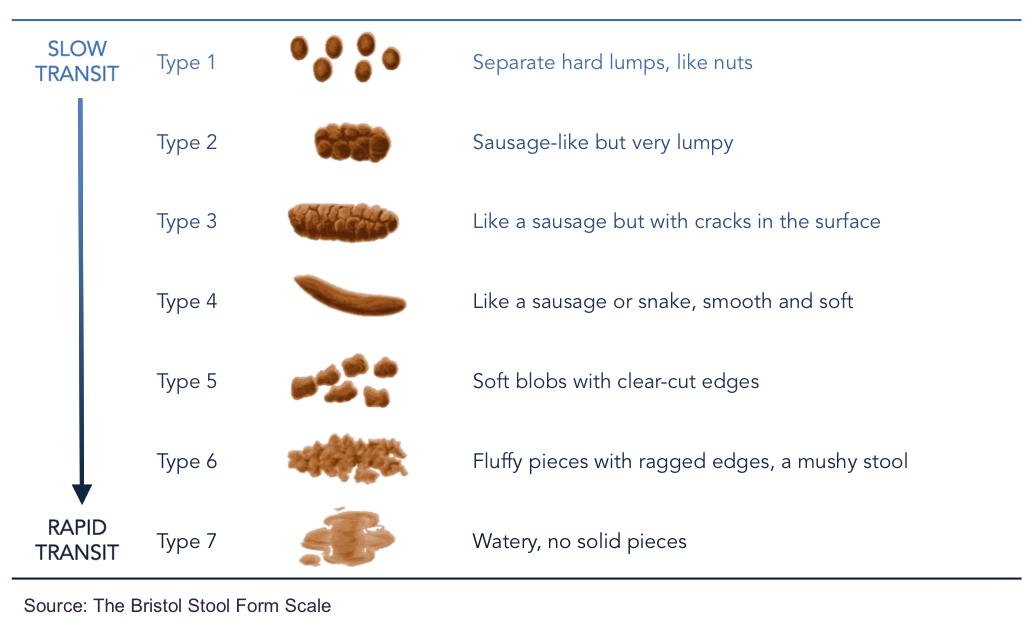Discover the impact of not pooping for 4 days on weight gain. Explore the connection between bowel movements and weight to make informed decisions about your digestive health.
In this article, we will explore the potential impact of not pooping for four days on weight gain. While it may seem like an unusual topic, understanding the connection between bowel movements and weight can provide valuable insights into our digestive health. By examining the effects of not eliminating waste for an extended period, we can gain a better understanding of how our bodies process nutrients and maintain overall weight. Delving into this subject matter will shed light on an often overlooked aspect of our health and provide a foundation for making informed decisions about our well-being.
I. Understanding the Digestive Process
A. The role of the digestive system
The digestive system plays a crucial role in breaking down food, absorbing essential nutrients, and eliminating waste products from the body. It consists of various organs, including the mouth, esophagus, stomach, small intestine, large intestine, rectum, and anus, all of which work together to facilitate the digestion and absorption of nutrients.
B. The purpose of bowel movements
Bowel movements, also known as defecation, are essential for eliminating waste products, bacteria, and toxins from the body. When the food passes through the digestive system, nutrients are absorbed in the small intestine, and the undigested material and waste products move into the large intestine. The large intestine absorbs water and electrolytes while forming waste material into stool, which is then excreted through bowel movements.
C. Factors affecting bowel movements
Several factors can influence the frequency and regularity of bowel movements. These include dietary factors such as fiber intake, hydration status, medications, physical activity, and overall bowel habits. Understanding these factors can help maintain a healthy digestive system and prevent issues such as constipation or delayed bowel movements.
II. Causes of Delayed Bowel Movements
A. Lack of fiber in the diet
A diet low in fiber can significantly contribute to delayed bowel movements and constipation. Fiber adds bulk to the stool, promoting regular bowel movements by preventing dehydration of the stool and facilitating its movement through the intestines. By including fiber-rich foods such as whole grains, fruits, vegetables, and legumes in your diet, you can help regulate your bowel movements.
B. Dehydration
Inadequate fluid intake can lead to dehydration, which can result in delayed bowel movements. Water is crucial for maintaining normal bowel function as it helps soften the stool and promote regular bowel movements. Therefore, it is essential to ensure adequate hydration throughout the day to prevent constipation and facilitate smooth bowel movements.
C. Medications that affect bowel movements
Certain medications, such as opioids, antacids containing aluminum or calcium, antidepressants, and iron supplements, can cause delays in bowel movements. These medications may slow down the digestive process, leading to constipation or infrequent bowel movements. If you suspect that a medication you are taking may be affecting your bowel movements, it is advisable to consult with a healthcare professional.
D. Sedentary lifestyle
A sedentary lifestyle, characterized by a lack of physical activity or prolonged sitting, can contribute to delayed bowel movements. Exercise promotes healthy digestion by stimulating the muscles of the gastrointestinal tract. When these muscles contract, they help propel the food through the digestive system, promoting regular bowel movements. Engaging in regular physical activity can aid in preventing constipation and maintaining a healthy digestive system.

III. Effects of Not Pooping for 4 Days
A. Accumulation of waste in the colon
When bowel movements are delayed or infrequent, waste material can accumulate in the colon. This accumulation can result in increased discomfort and irritation as the waste material remains in the body for longer periods. Additionally, the prolonged presence of waste products in the colon may also increase the risk of bacterial overgrowth and potential health complications.
B. Increased water absorption
The longer the stool remains in the colon, the more water is absorbed from it. This can subsequently lead to harder, drier stools, making them more difficult to pass and increasing the likelihood of constipation. The increased water absorption can also contribute to dehydration, further exacerbating the issue of delayed bowel movements.
C. Possible weight gain
Not pooping for four days can lead to a temporary increase in body weight, primarily due to the accumulation of waste material in the colon. However, it is important to note that this weight gain is not indicative of true fat gain. Once regular bowel movements are restored, this temporary weight gain should resolve.
D. Discomfort and bloating
Delayed bowel movements can cause discomfort, bloating, and a sense of fullness. The accumulation of waste material in the colon can stretch the intestinal walls, leading to these uncomfortable sensations. Bloating can also be exacerbated by the increased production of gas during fermentation of undigested food by bacteria in the colon.
IV. Understanding Weight Gain
A. Calorie intake vs. calorie expenditure
Weight gain is generally attributed to an imbalance between calorie intake and calorie expenditure. When the number of calories consumed exceeds the number of calories burned through physical activity and metabolism, the excess calories may be stored as fat, leading to weight gain. However, it is important to note that weight gain from delayed bowel movements is primarily due to the temporary accumulation of waste and not true fat gain.
B. Role of metabolism in weight gain
Metabolism refers to the process by which the body converts food and drink into energy. It plays a vital role in determining the rate at which calories are burned. While variations in metabolism can influence weight gain, the impact of delayed bowel movements on metabolism is relatively minor compared to other factors such as overall diet and physical activity levels.
C. Fluid retention and weight fluctuations
Temporary weight fluctuations can occur due to factors such as fluid retention. While delayed bowel movements may lead to an increase in body weight due to waste accumulation, it is important to distinguish between such temporary fluctuations and long-term weight gain. True weight gain occurs when an individual consistently consumes more calories than they expend over an extended period.

V. Relationship Between Bowel Movements and Weight Gain
A. Impact of not pooping on weight measurement
Not pooping for four days can result in a temporary increase in body weight due to the accumulation of waste in the colon. However, this weight gain is not indicative of true fat gain, and once regular bowel movements are restored, the weight should return to normal.
B. Temporary weight gain due to waste accumulation
The accumulation of waste material in the colon can lead to a temporary increase in body weight. This is primarily due to the weight of the undigested food, stool, and extra water absorbed by the stool during its prolonged presence in the colon. Once regular bowel movements occur, this temporary weight gain should resolve.
C. Influence on metabolism and calorie utilization
While delayed bowel movements may temporarily affect metabolism and calorie utilization, their impact on weight gain is relatively minimal. Factors such as overall diet, exercise levels, and calorie intake contribute more significantly to long-term weight management. Ensuring a balanced diet, regular physical activity, and maintaining a healthy digestive system are key for overall weight management.
VI. Myth vs. Reality: Colon Cleanse and Weight Loss
A. Popular misconceptions about colon cleansing
There are several popular misconceptions surrounding colon cleansing as a means of weight loss. Some believe that a colon cleanse can detoxify the body, improve digestion, and lead to significant weight loss. However, it is important to separate fact from fiction when evaluating the effectiveness and safety of colon cleansing methods.
B. Lack of scientific evidence supporting weight loss via colon cleanse
Scientific evidence supporting the use of colon cleanses for weight loss is limited. While some individuals may experience temporary weight loss due to the elimination of waste and water, this weight loss is not indicative of true fat loss. Furthermore, the effectiveness and safety of various colon cleansing methods vary, and caution should be exercised when considering such approaches.
C. Potential risks and side effects of colon cleansing
Colon cleansing methods, such as herbal supplements, enemas, and colon hydrotherapy, carry potential risks and side effects. These may include electrolyte imbalances, dehydration, disruption of the natural gut microbiota, bowel perforation, and adverse reactions to cleansing agents. It is essential to consult with a healthcare professional before undergoing any form of colon cleansing to ensure safety and efficacy.

VII. Promoting Regular Bowel Movements
A. Dietary recommendations for healthy digestion
To promote regular bowel movements, it is crucial to maintain a diet that is rich in fiber. Including fiber-rich foods such as whole grains, fruits, vegetables, legumes, and nuts can help prevent constipation and ensure proper digestion. Additionally, staying well-hydrated and consuming an adequate amount of fluids can aid in softening the stool and facilitating smooth bowel movements.
B. Importance of hydration
Adequate hydration is essential for maintaining regular bowel movements. Drinking enough water throughout the day helps prevent dehydration, which can contribute to constipation. It is recommended to consume at least 8 cups (64 ounces) of fluid daily, although individual needs may vary depending on factors such as age, activity level, and climate.
C. Physical activity and its impact on bowel movements
Regular physical activity and exercise can help stimulate the muscles of the gastrointestinal tract, promoting healthy digestion and regular bowel movements. Engaging in activities such as walking, jogging, cycling, or swimming can aid in preventing constipation and maintaining a healthy digestive system.
VIII. When to Seek Medical Advice
A. Chronic constipation and underlying conditions
If you frequently experience delayed bowel movements or chronic constipation that persists for an extended period, it is advisable to seek medical advice. Chronic constipation may be a symptom of an underlying digestive disorder, such as irritable bowel syndrome (IBS), thyroid issues, or structural abnormalities in the colon. A healthcare professional can evaluate your symptoms, conduct appropriate tests, and provide a diagnosis and treatment plan.
B. Signs of digestive system dysfunction
In addition to delayed bowel movements, certain signs may indicate underlying digestive system dysfunction. These include severe abdominal pain, blood in the stool, unexplained weight loss, persistent bloating or distension, changes in bowel habits, or prolonged periods of constipation or diarrhea. If any of these symptoms are present, it is important to consult with a healthcare professional for further evaluation.
C. Consulting a healthcare professional
When in doubt or if experiencing persistent or concerning symptoms related to delayed bowel movements, it is always recommended to consult with a healthcare professional. They can provide a comprehensive evaluation, determine the underlying cause, and recommend appropriate treatment options to address your individual needs.
IX. Maintaining a Healthy Digestive System
A. Balancing fiber intake
Incorporating an adequate amount of fiber into your diet is essential for maintaining a healthy digestive system. Aim for a well-balanced and varied diet that includes whole grains, fruits, vegetables, legumes, and nuts to ensure a sufficient intake of dietary fiber. Gradually increasing fiber intake and staying consistent with it can help prevent constipation and promote regular bowel movements.
B. Incorporating probiotics into the diet
Probiotics are beneficial bacteria that can help restore and maintain a healthy balance of gut flora. Including probiotic-rich foods such as yogurt, sauerkraut, kefir, and kimchi can support digestive health and improve bowel regularity. Furthermore, probiotic supplements are available for those who may benefit from additional support in maintaining a healthy digestive system.
C. Regular physical activity
Engaging in regular physical activity and exercise is not only essential for overall health but also beneficial for maintaining a healthy digestive system. Exercise stimulates the muscles of the gastrointestinal tract, contributing to healthy digestion and regular bowel movements. Aim for at least 150 minutes of moderate-intensity aerobic activity per week, in addition to strength training exercises.
D. Stress management
Chronic stress can contribute to digestive system dysfunction and impact bowel movements. Practicing stress management techniques such as deep breathing exercises, meditation, yoga, or engaging in hobbies can help reduce stress levels and promote a healthy digestive system. Additionally, establishing a regular sleep routine and getting an adequate amount of quality sleep can also contribute to overall digestive health.
X. Conclusion
Understanding the digestive process and its relationship to bowel movements and weight gain is essential for maintaining a healthy digestive system. Delayed bowel movements can lead to temporary weight gain due to waste accumulation, increased water absorption, and discomfort. However, it is important to distinguish between temporary weight fluctuations and long-term weight gain caused by an energy imbalance.
Promoting regular bowel movements requires a balanced diet rich in fiber, adequate hydration, regular physical activity, and effective stress management. If chronic constipation or concerning symptoms persist, seeking medical advice is advisable to identify any underlying conditions. Remember that maintaining a healthy digestive system is crucial for overall well-being, and adopting these lifestyle practices can contribute to a healthy and balanced life.

